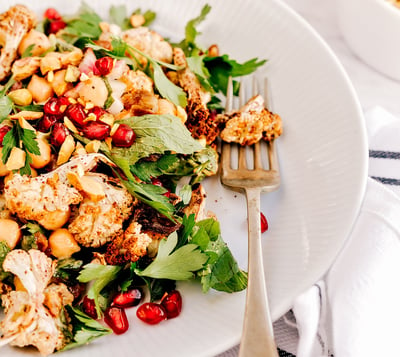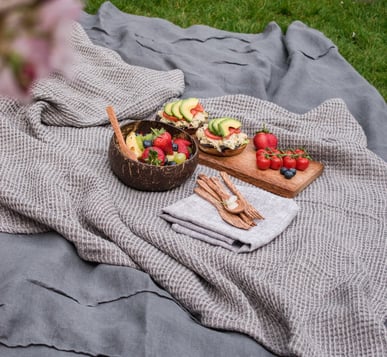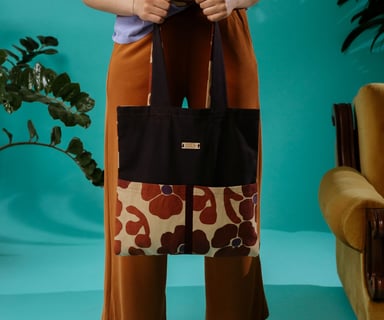Low-Waste Living: Easy Things To Adapt For A Greener Lifestyle
Everyone talks about plastic pollution and it's a known problem, but how huge is it? Quite huge. From 2.3 million tons in 1950 to 448 million tons by 2015, these numbers expecting to double by 2050. Every year around 8 million tons of plastics escape to seas and oceans. With numbers like this, every year more and more people searching for more sustainable lifestyle ideas and solutions without plastics.
10/30/2023


Everyone talks about plastic pollution and it's a known problem, but how huge is it? Quite huge. From 2.3 million tons in 1950 to 448 million tons by 2015, these numbers expecting to double by 2050. Every year around 8 million tons of plastics escape to seas and oceans. With numbers like this, every year more and more people searching for more sustainable lifestyle ideas and solutions without plastics.
Words like zero waste lifestyle could sound pretty challenging for starters, but the key is to understand that your process matters and you don't wake up one day being zero waste. Let's begin with a low-waste lifestyle and start with small things like recycling, reducing by thinking twice, and reusing things we have. By adapting things like this into our lifestyle we can reduce the amount of plastic waste in the seas and oceans. It's an easy change for us, but a powerful way to make a positive impact on our environment. Let's begin with a few easy ways to make your lifestyle greener.
1. Say No to Single-Use Cutlery and Coffee cups.
Single-use cutlery and coffee cups are one of the most common items when we're talking about plastic pollution. These items have a huge impact on the environment. Every year, billions of single-use plastic cups and cutlery end up in landfills, oceans, seas, and other places in nature. It's time to say no to single-use cutlery and coffee cups and adopt a more sustainable lifestyle.
One of the easiest ways to reduce plastic pollution is by using travel cups and reusable cutlery. Travel cups are eco-friendly, durable, and can be used for years. They are also easy to carry and come in different designs to suit your style. By using a travel cup, you can significantly reduce your use of single-use coffee cups and their contribution to plastic pollution. Similarly, reusable cutlery is a simple yet powerful way to reduce plastic waste. Instead of using single-use plastic cutlery, you can carry your own reusable cutlery at work, picnics, etc. There are a lot of different reusable cutlery options available, including bamboo, stainless steel, and even recycled plastic. By using reusable cutlery, you can significantly reduce your use of single-use plastic cutlery and their contribution to plastic pollution.
With the growing availability of eco-friendly alternatives, it's easy to adopt a more sustainable lifestyle without compromising your comfort. Many cafes and restaurants also offer discounts to customers who bring their reusable cups and cutlery, making it a win-win situation for all, as you even save some money! Let's take an easy step forward with this one.
2. Reduce your food waste.
Reducing food waste is an important issue that can make a powerful impact on the environment and our wallets. With a little bit of planning and mindful cooking, everyone can do their part to reduce food waste and save money in the process. Every year almost 1/3 of all food is wasted. These statistics are just shocking, but every one of us can do our part in this story.
One of the easiest ways to reduce food waste is by planning your meals ahead of time. This can involve creating a weekly meal plan or simply making a list of the meals you want to cook, that have quite the same ingredients or are complementary to each other. By doing this, you can avoid buying more food than you need, also you won't need to often shop. which will even save you some time and a lot of money. Another way to reduce food waste is by being conscious of the ingredients you have on hand and using them before they go bad. This can involve using up leftovers, freezing extra portions for later, or finding creative ways to use up ingredients that are about to expire. For example, if you have extra vegetables that are starting to get bad, you can make a soup or stir-fry to use them up before they root.
When cooking meals, it’s important to be mindful of portion sizes and only cook what you need. This can help to avoid overeating and prevent food from going to waste. Additionally, it’s a good idea to store leftovers in airtight containers in the fridge or freezer for future meals. reducing food waste can be a simple and effective way to save money and protect the environment. By planning meals ahead of time, being conscious of ingredients, and using up leftovers, we can all do our part to reduce food waste and make a positive impact on the world around us.
3. Responsible disposal
When it's time to get rid of items, don't forget to be responsible. Recycling, donating, or reusing unwanted goods is not only good for the environment but also for the community. However, it is important to do it properly.
One way is to drop off recyclable items at recycling centers. These centers accept a wider range of materials, including electronics, batteries, and hazardous waste, old furniture, and many more. Donating is another great way to get rid of unwanted items. Instead of throwing away clothing, furniture, and other household items, consider donating them to local charities or via local groups. These items can be used by those in need or sold to raise funds for the organization. Additionally, many organizations accept donations of electronic devices such as computers and cell phones, for those in need. Reusing is yet another way to be responsible at your disposal. Before throwing something away, ask yourself if it could be repurposed or used in a different way. For example, glass jars can be used as storage containers, old t-shirts can be turned into rags, and cardboard boxes can be used for storage or moving.
When it comes to hazardous waste, it is especially important to dispose of it properly. Hazardous waste includes items such as batteries, light bulbs, and cleaning products. These items should never be thrown in the trash or recycling bin. Instead, research local hazardous waste disposal facilities or events in your area. Many communities offer free drop-off events for hazardous waste!
Overall, responsible disposal is essential for the health of the environment and the community. Recycling, donating, and reusing unwanted items can help reduce waste and conserve resources. Properly disposing of hazardous waste is equally important to prevent harm to the environment and human health. By doing our part, we can create a more sustainable and healthy future for generations to come.
4. Eco-friendly gifts for friends and family
Eco-friendly gifts have gained popularity in recent years as people become more aware of their actions for the environment. Choosing gifts that promote sustainability is a great way to show your loved ones that you care about them and the environment they live in.
One of the best ways to do this is by giving gifts that are reusable or made from natural materials. One great option for an eco-friendly gift is a potted plant. Not only do they add a touch of greenery to any home, but they also help purify the air and create a calming atmosphere. Plants are something that can be enjoyed for years to come, making them a sustainable gift that keeps on giving. Another option for a sustainable gift is a reusable product. Tote bags and canvas bags are great examples of reusable things that can help reduce waste. Tote bags and canvas bags are perfect for grocery shopping and daily activities. Reusable bags are a great way to cut single plastics from your shopping habits, as they can be used for years and still be recycled. When choosing sustainable gifts, it's important to consider the materials used to make the product. Tote bags and canvas bags made from natural materials like cotton are great options as they are both eco-friendly and durable. They can be used for years without needing to be replaced, making them a sustainable choice.
Choosing eco-friendly gifts is a great way to promote sustainability in your close circle and show your loved ones that you care. By opting for potted plants, reusable products, or experiences, you can reduce waste and contribute to a healthier planet.
5. Don't forget your tote bag. Or any other reusable bag
Bring Your Own Bags: Always carry reusable bags, including shopping bags, canvas bags, and totes. Bringing your reusable bags when you go shopping is a simple but effective way to reduce the use of single-use plastic bags. Single-use plastic bags are a major contributor to environmental pollution. They take hundreds of years to decompose, and during this time, they release harmful chemicals into the environment, posing a serious threat to wildlife.
Reusable bags come in different materials, sizes, and designs, making them a practical and stylish alternative to plastic bags. Totes, for example, are versatile bags that can be used daily, not just for shopping, but also as an accessory covering your daily needs. They come in various sizes and designs, allowing you to choose one that suits your style and personality. Moreover, totes are durable and can be washed, ensuring that they last for years. Another benefit of using reusable bags is that they can save you money in the long run. By using your own bags, you can not only help the environment but also save some money while you're at it. Bringing your reusable bags, canvas bags, and totes when you go shopping is a small but significant step towards a sustainable future.
At Happy&Hyped we're creating simple, yet practical bags, that cover your daily needs such as sports equipment or simple grocery shopping. All of our bags are made from natural materials and we're offering unique design bags for your sustainable lifestyle.
Living a low-waste lifestyle can seem overwhelming at first, and there are some challenges, but there lot of easy things to adapt into your daily life.
By making simple changes in our daily habits, we can do our part to make a greener planet. Saying no to single-use cutlery and coffee cups, reducing food waste, disposing of our waste responsibly, choosing eco-friendly gifts, and carrying reusable bags are just a few of the many ways we can make a difference. Each one of us can take steps towards a more sustainable future, and it all starts with small steps that make a huge impact. By being conscious of our choices and making an effort to reduce our waste, we can all do our part in creating a healthier planet for ourselves and for others!












